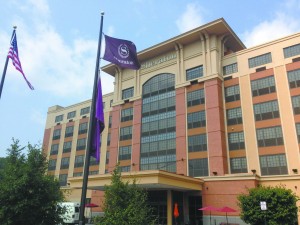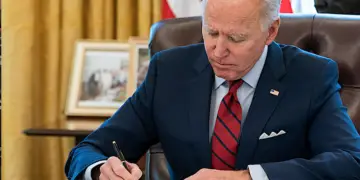Gov. Andrew Cuomo signed a series of bills into law on New Year’s Eve that will authorize 14 Westchester municipalities to charge local hotel occupancy taxes.
The laws will allow the municipalities to charge hotels an additional 3 percent tax on room bookings starting this year. The series of bills allows the following to charge the tax: ”¢ Greenburgh
Ӣ Tarrytown
Ӣ Irvington
Ӣ Ardsley
Ӣ Elmsford
Ӣ Dobbs Ferry
Ӣ Hastings-on-Hudson
Ӣ Mount Kisco
Ӣ Sleepy Hollow
Ӣ Tuckahoe
Ӣ North Castle
Ӣ Harrison
Ӣ Mamaroneck
Ӣ Port Chester
Cuomo vetoed similar bills last year, saying at the time that the state Legislature has historically only approved occupancy tax bills for counties and cities, not towns or villages.
In a letter to Cuomo dated Dec. 29, four Hudson Valley Assembly members urged the governor to approve this year’s set of occupancy tax bills.
“These bills align with your efforts to reduce the significant property tax burden facing homeowners. The revenue raised through these municipal occupancy fees ”“ much of it from out-of-state visitors ”“ will support local government operations  that otherwise would need to be paid through the property tax levy,” wrote New York Democratic Assembly members Amy Paulin of Scarsdale; Tom Abinanti of Greenburgh; David Buchwald of White Plains and James Skoufis of Woodbury.
In approving the bills this year, Cuomo said he was satisfied that the legislation came with assurances the Legislature would develop a statewide plan for local hotel tax issues.
“The Legislature has agreed to develop a policy that will balance the needs of each municipalities’ residents with the state’s ongoing efforts to encourage towns and villages to consolidate and cooperatively develop solutions to economic issues,” Cuomo wrote in his approval message, Gannett’s Albany bureau reported.
Paul Feiner, who as town supervisor of Greenburgh has pushed for a local occupancy tax since 2009, celebrated the news in an email update to residents on New Year’s Day.
“Big positive news to start the new year with,” Feiner wrote. “Last night (Cuomo) signed legislation into law that will generate about a million dollars a year to unincorporated Greenburgh. This revenue will be used to keep taxes for unincorporated Greenburgh residents lower than they might have been.”
Several of Westchester’s cities ”“ White Plains, Yonkers, New Rochelle and Rye ”“ along with the the village of Rye Brook, already collect a 3 percent occupancy tax, which is charged on top of the 3 percent fee on bookings the county collects.
White Plains expects to collect $1.1 million from its occupancy tax next year, according to its 2016-17 operating budget. New Rochelle projects about $310,000 in revenue from its occupancy tax this year and Yonkers about $800,000, according to the cities’ fiscal year budgets. Rye Brook, the only Westchester village previously approved for a hotel occupancy tax, projected $552,000 in revenue from the tax in its 2017 budget.
The county, meanwhile, budgeted about $6.5 million for its occupancy tax revenue.
As Greenburgh and other municipalities have pushed for the tax, it has been opposed by hotels in the county. Dan Conte, president of the Westchester Hotel Association wrote to Cuomo in 2015 urging him to veto the local occupancy taxes, which the governor later did.
Conte, general manager of the Westchester Marriott hotel in Tarrytown, wrote that the tax increase targets an industry “already struggling in a highly competitive market.”
“Our business relies heavily on annual bookings of large blocks of rooms by the businesses whose corporate travel planners could easily shift their hotel choices to adjacent markets in northern New Jersey and Fairfield County,” said Conte in the letter, who noted Greenburgh is home to almost a dozen hotels. “All would be hurt as well as the local economy, which benefits from the visitors they attract.”
John Ravitz, executive vice president of the Business Council of Westchester, had similar concerns about the tax affecting conferences and other large corporate bookings in the county. Ravitz said the Business Council wrote to Cuomo in July asking him to again veto the bills approving the local tax.
“Tarrytown has some of the larger conferences in the county,” Ravitz told the Business Journal. “If a business or a conference wants to come in from all over the country and bring members into Westchester, knowing they can get on Metro-North and get into the city, it’s a win-win for us… Let’s hope that this isn’t a step backwards.”


















